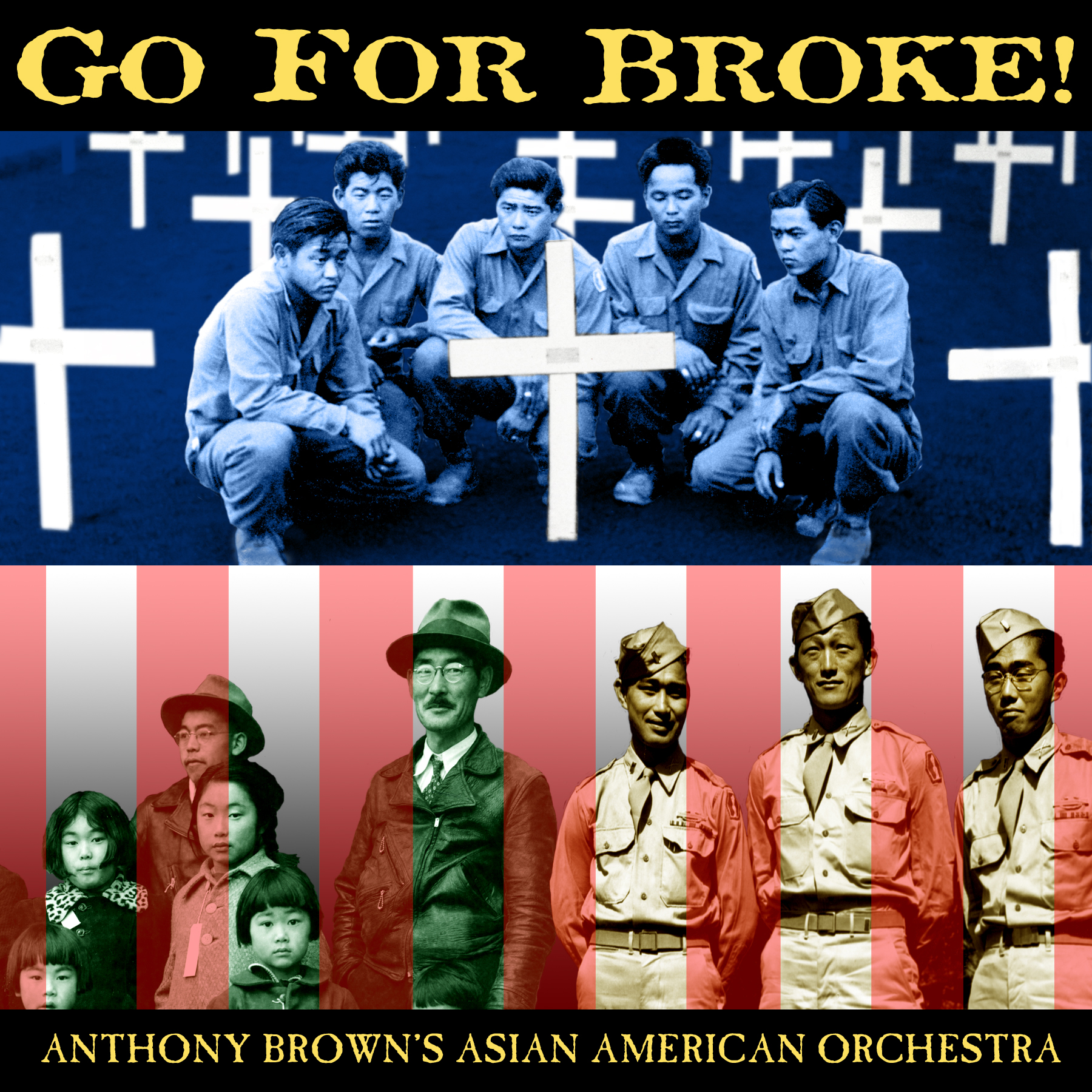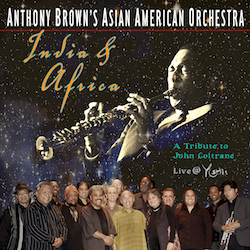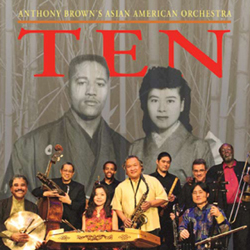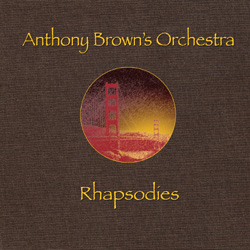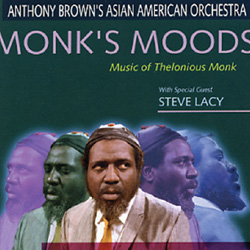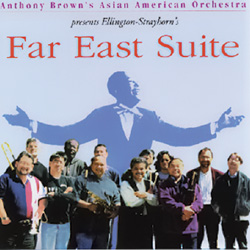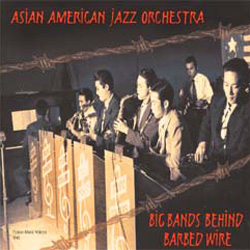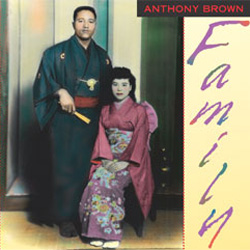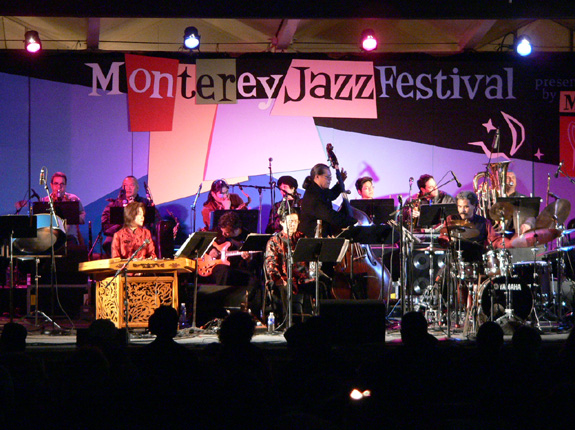ANTHONY BROWN’S ASIAN AMERICAN ORCHESTRA
Photo: Kathy Sloane
In the global community of the 21st century, Anthony Brown's Orchestra presents music that blends the sonorities and improvisational approaches of the jazz tradition with Asian musical instruments and sensibilities. In 1997, leaders of San Francisco's Asian American creative music movement founded the Asian American Jazz Orchestra (AAJO), under the auspices of a San Francisco-based, federally funded multimedia consortium project to provide education nationally about the Japanese American internment experiences of World War II. The AAJO featured critically acclaimed musicians Anthony Brown, Jon Jang, Mark Izu, Hafez Modirzadeh and Francis Wong, as well as other San Francisco Bay Area jazz and world music artists, many of whom possessed fluency on a variety of traditional Asian instruments. With Brown as director, the Orchestra, in collaboration with San Jose Taiko, toured and performed a series of extended works composed respectively by Brown, Izu and Jang. Excerpts of these live performances were compiled for the Orchestra's first release, Big Bands Behind Barbed Wire. "Rhymes (For Children)," from Brown's composition, "E.O. 9066: Truth Be Told," became the theme music for Pacific Time, a syndicated weekly Public Radio International newsmagazine produced by KQED-FM.
With the completion of the Big Bands project, Brown chose to continue working with and leading an expanded version of the AAJO. The ensemble was renamed Anthony Brown's Asian American Orchestra (AAO) in the traditions of King Oliver's Creole Jazz Band and Machito's Afro Cubans. In celebration of Duke Ellington's centennial in 1999, Brown developed and recorded the AAO's interpretation of Duke Ellington-Billy Strayhorn's Far East Suite, which garnered the Orchestra a 2000 Grammy nomination for Best Large Jazz Ensemble Performance. In 2000, late jazz saxophonist and MacArthur genius grant recipient Steve Lacy joined the Orchestra to record Monk's Moods, featuring new interpretations of Thelonious Monk compositions produced in collaboration with Monk's original producer, Orrin Keepnews. Downbeat magazine rated Monk's Moods a "five-star masterpiece," "Best CD of 2003." The Orchestra’s 2005 release, Rhapsodies includes Brown’s Pacific Rim reimagining of Gershwin’s Rhapsody In Blue, which he completed as a Guggenheim Fellow. Also included are Charles Mingus’ Self-Portrait in Three Colors, three original compositions by Brown, and two Duke Ellington selections, “Tang” from Afro-Eurasian Eclipse and his immortal spiritual, Come Sunday featuring David Murray on bass clarinet.
The Orchestra’s 2008 CD, TEN represents the culmination of a decade of music making by the Asian American Orchestra, highlighting favorites from the Orchestra's repertoire, and including selections from the original score for American Conservatory Theater’s premiere of After The War. India & Africa: A Tribute to John Coltrane, recorded live at Yoshi's Jazz Club in Oakland, CA in 2010, showcases North Indian instruments tabla and the sarod, as well as African percussion in the Orchestra’s homage to Jazz Master John Coltrane. New arrangements of rarely performed Coltrane compositions are featured including "Living Space," "Olé," "Liberia," "Dahomey Dance," and the extended works, "India" and "Africa." The latest CD, GO FOR BROKE! , was commissioned to commemorate the Nisei (second generation Japanese American) veterans on the 75th anniversary of President Roosevelt’s signing of the interment order, E.O. 9066. Former San Francisco Poet Laureate, Janice Mirikitani is featured reciting her poetry of her mother’s experience in the camps, and testimony from soldiers serving in the war.

